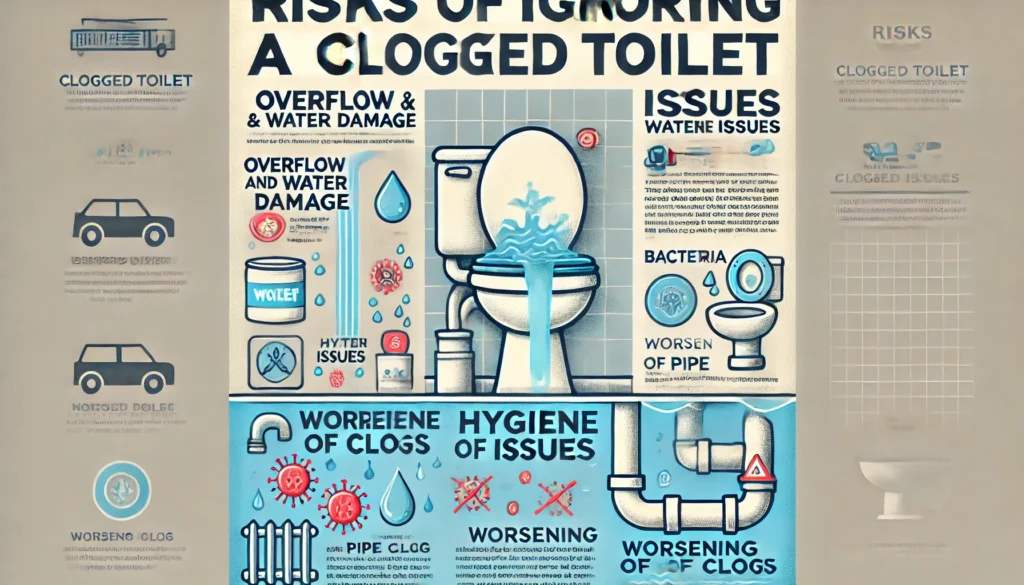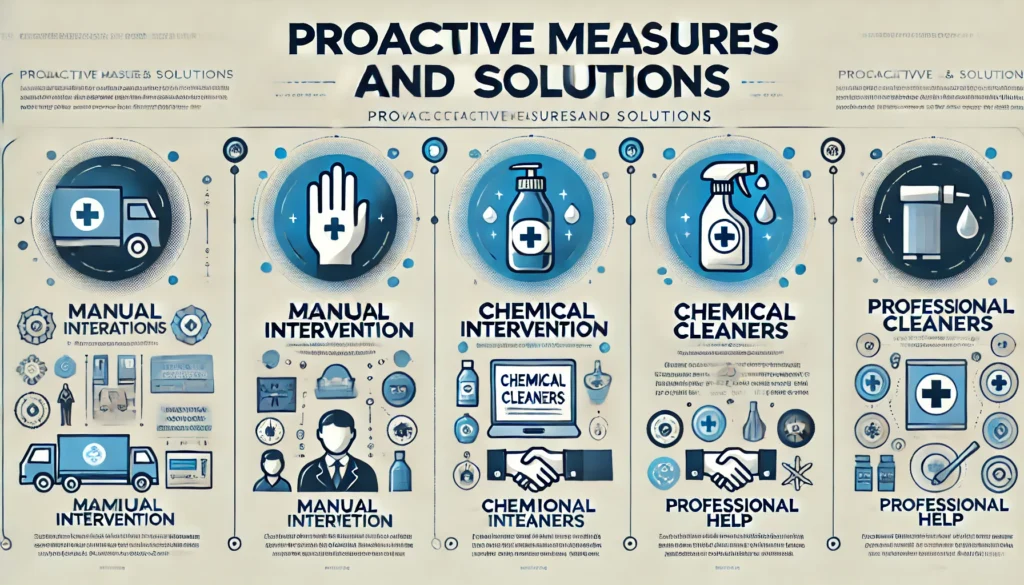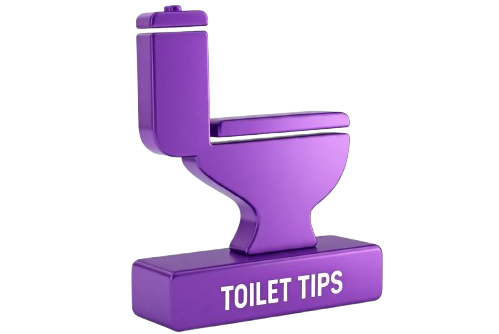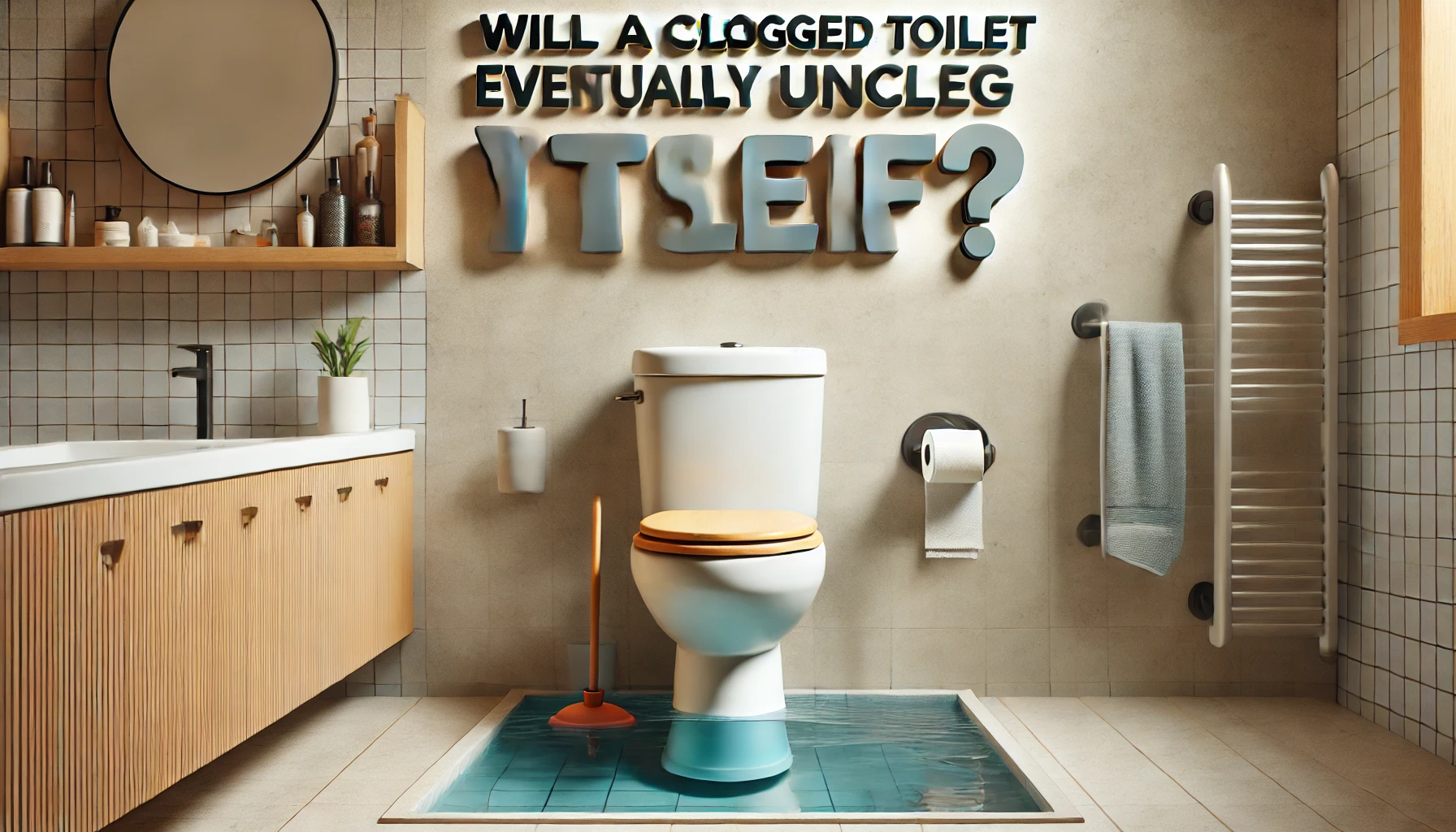When you encounter a clogged toilet, it’s natural to hope that the problem might resolve itself over time. The idea that a clogged toilet could unclog itself seems appealing, especially to avoid the mess and effort involved in dealing with the blockage.
This article explores whether a clogged toilet can indeed unclog itself, under what circumstances this might occur, and what actions you should take to effectively address toilet clogs.
Table of Contents
Common Causes of Toilet Clogs
Excessive toilet paper and foreign objects are common culprits that can lead to clogged toilets. Children’s toys, cotton swabs, sanitary products, and wipes are among the significant culprits that can block the pipes. When large amounts of waste are using the toilet, it can lead to blockages.
Can a Toilet Unclog Itself?
While it’s possible for a clogged toilet to unclog itself under certain conditions, it’s generally not advisable to rely on this happening. Factors such as the severity of the clog, water pressure, and the type of waste can influence whether the toilet will unclog on its own.
Dissolution and Breakdown
The dissolution and breakdown of organic waste materials play a crucial role in determining whether a clogged toilet will unclog itself. Organic waste materials, such as toilet paper, are designed to break down and pass through the plumbing system.
However, the process of dissolution can be influenced by factors like the type of toilet paper used and the frequency of repeated flushes.
Soft toilet paper, specifically designed to dissolve quickly, is more likely to disintegrate over time, reducing the risk of clogs.
Gravity and Water Pressure
While water pressure can play a role in toilet bowl plumbing and blockages, it’s not always the natural force that will gradually resolve a clog. While it’s tempting to wait and see if a clog will resolve itself, it isn’t always advisable. Here’s why:
- Pressure limitations: While water pressure can gradually push a clog through the plumbing, it may not be strong enough to overcome stubborn blockages.
- Time factor: Waiting for a clog to resolve itself can lead to more significant problems, such as overflowing toilets or water damage.
- Risk of worsening: Ignoring a clog can sometimes cause it to worsen, making it more difficult to address later.
Risks of Ignoring a Clogged Toilet
Overflow and Water Damage
Ignoring a clogged toilet can lead to serious consequences, including overflow and water damage. If left unchecked, a persistent clog can cause the toilet to overflow, spilling water onto the bathroom floor.
This overflow can quickly spread to other areas of the home, causing significant water damage that requires expensive repairs. While it’s tempting to hope that the clog will clear up on its own, sitting on the problem can lead to even greater risks.
Hygiene Issues
A clogged toilet can create unsanitary conditions by harboring harmful bacteria and emitting unpleasant odors. When a toilet is blocked, wastewater can overflow, contaminating surfaces and spreading germs. This can lead to a variety of health problems, including infections, diarrhea, and respiratory illnesses.
Worsening of Clogs
A minor clog can quickly escalate into a severe blockage if left unattended. As waste accumulates behind the clog, pressure builds, potentially causing the pipe to rupture or overflow. Additionally, the longer a clog persists, the more difficult it becomes to resolve, often requiring more invasive and costly plumbing techniques.

Proactive Measures and Solutions
To prevent and address clogged toilets, it’s essential to have a proactive approach. Strategies such as using a plunger, auger, or even a wire hanger can be effective in dislodging clogs.
For more stubborn blockages, a combination of baking soda, vinegar, and hot water can help break down the buildup. If the clog persists, it may be necessary to use a toilet brush to manually remove debris.
Manual Intervention
If a clogged toilet doesn’t unclog on its own, manual intervention may be necessary. A plunger is a common tool used to dislodge blockages that are relatively close to the toilet bowl. For deeper clogs, a toilet auger can be used to break up obstructions further down the pipes.
Chemical Cleaners
While enzymatic cleaners can effectively break down organic material, they may not be suitable for all clogged toilets. Some chemical cleaners can damage your plumbing if used improperly or excessively.
It’s essential to follow the manufacturer’s instructions carefully and consider alternative methods if you’re concerned about potential harm to your plumbing system.
Professional Help
If home remedies fail to unclog your toilet, it’s time to call a plumber. A professional can assess the situation and resolve even the most complex clog issues. While DIY methods can be effective for minor clogs, severe blockages may require specialized tools and expertise.

Preventive Practices
To minimize the risk of clogged toilets, it’s essential to adopt preventive practices. By using toilet paper sparingly and understanding that it is designed to dissolve easily, you can reduce the likelihood of blockages.
Avoid flushing prohibited items that are not intended for the toilet, such as flushable wipes or disposable diapers. Educating all household members about proper toilet usage is crucial.
Regular maintenance is also essential; periodically using natural cleaners can help clear any buildup in the pipes.
Conclusion
In conclusion, while the idea of a clogged toilet unclogging itself might seem convenient, it’s often not reliable or safe to wait it out. Various factors, like the nature of the clog, water pressure, and waste material type, play a role in determining whether a toilet can naturally clear itself.
Ignoring a clog can lead to severe consequences, such as overflow, water damage, and health risks due to unsanitary conditions.
Instead, taking immediate action through manual methods, safe chemical cleaners, or even seeking professional assistance is a proactive approach that ensures both cleanliness and the proper functioning of your plumbing system.
Regular maintenance and mindful flushing practices can further help prevent clogs, maintaining a hygienic and hassle-free bathroom environment.
Check also: Why Is My Toilet Water Level Low? Understanding the Causes and Solutions!
Frequently asked Questions
How Long Does It Take for a Toilet to Unclog Itself?
In some cases, a toilet may unclog itself within a few hours, especially if the clog is minor and made up of dissolvable materials like toilet paper. However, it can also take several days, depending on the type and extent of the clog. Waiting too long is not advisable, as stagnant water may pose hygiene risks.
Can Flushing Multiple Times Help Unclog a Toilet?
Flushing multiple times might help push a minor clog through, but it can also lead to an overflow if the blockage is severe. Instead, using a plunger or other clog-removing tools is usually more effective and safer to avoid potential water damage.
Is It Safe to Use Hot Water to Unclog a Toilet?
Using hot water can help soften certain types of clogs, especially those involving organic material or soap buildup. However, boiling water should be avoided as it may damage the toilet bowl or pipes. Warm water combined with dish soap can be a safer alternative to try.
Will a Toilet Paper Clog Dissolve Over Time?
Toilet paper is designed to dissolve in water over time, so small paper-only clogs may clear on their own. The rate of dissolution depends on water movement, type of paper, and other materials present. Still, if the clog persists, it’s best to intervene rather than wait.
What Should I Do if My Toilet Overflows While Waiting?
If you’re waiting for a clog to clear and the toilet overflows, immediately shut off the water supply valve near the base of the toilet. Clean up the water to avoid damage and unsanitary conditions. An overflow usually indicates that intervention is necessary.
Can a Toilet Auger Help with a Deep Clog?
Yes, a toilet auger is designed for reaching deeper clogs beyond the reach of a plunger. Augers can break up stubborn obstructions farther down the pipes, making them a helpful tool when a plunger isn’t effective.
Are Chemical Cleaners Safe to Use for Unclogging Toilets?
Chemical cleaners can sometimes help dissolve organic waste in a clogged toilet, but they should be used with caution. Certain chemicals can damage plumbing or harm the environment. Enzyme-based cleaners are a safer alternative for organic clogs if used as directed.
Why Shouldn’t I Ignore a Clogged Toilet?
Ignoring a clogged toilet can lead to worsened blockages, potential overflow, and even structural damage if left unattended. Stagnant water may also become a breeding ground for bacteria, creating unsanitary conditions. Timely intervention is essential for maintaining a clean and safe bathroom.
When Should I Call a Plumber for a Clogged Toilet?
If basic DIY methods like plunging or using a toilet auger don’t work, or if the toilet frequently clogs, it’s best to call a plumber. Professionals have specialized tools and expertise to diagnose and fix deep or complex clogs without causing further damage to your plumbing.
How Can I Prevent Future Toilet Clogs?
Preventive practices include using only toilet paper in reasonable amounts, avoiding flushing items like wipes or sanitary products, and regularly cleaning the pipes with natural cleaners. Educating household members about proper toilet use can significantly reduce the chances of clogging.

